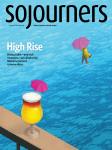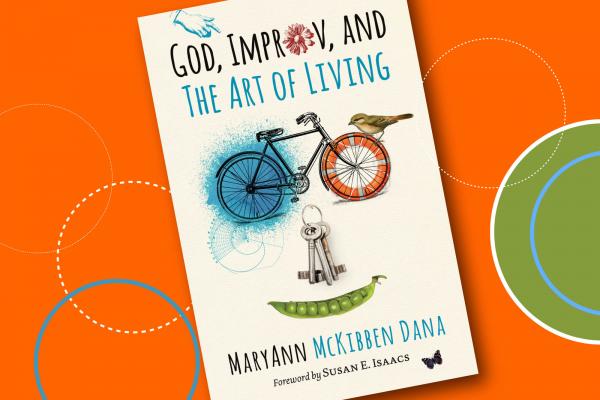THE DAY AFTER the 2016 election, I joined my weekly improv-for-clergy workshop. We were a small group of progressive pastors still in shock. It might be more accurate to say we were still in denial. The election had given us President Donald Trump, and we wanted to scream, “No!”
Though most of us were novices, we knew the first rule of improv comedy: “Yes, and.” You accept what someone else says and build on it. Improv is impossible without “Yes.”
Our teacher asked us, “Would you rather process the election or play?” We were unanimous, albeit tepid, in choosing to play. Laughter seemed the best medicine for shared distress if midday whiskey or a four-year nap were not options. We entered the play of improv that afternoon, testing the art’s fundamental stance captured in the rule of “Yes.” How could we say “Yes” when from our core we wanted to scream “No”?
MaryAnn McKibben Dana, who participated in that group while researching God, Improv, and the Art of Living, reminds us, “We are not in control of our lives. But we can choose Yes.”
Choosing “Yes” lies at the heart of resistance, and thus the insights and practices of improv have a great deal to offer both to activism and to keeping faith through these days when affronts to human dignity and assaults on democracy come faster than laugh lines at a Second City performance.
God, Improv, and the Art of Living is a timely and provocative guide for living in the time of Trump. Divided into seven sections, the book explores principles of improv, how they can be lived out day-to-day, and where they are evident in stories of Christian faith. Each section includes several chapters fleshing out the principles both in contemporary life and in scripture.
Along the way, McKibben Dana uses descriptions of improv games that bring to light group dynamics or individual habits of mind. An appendix includes more than 20 pages of meditations and games for individuals and groups to explore how the principles of improv can help move us through challenging circumstances.
McKibben Dana also invites us to reconsider core theological convictions. Noting that church has traditionally used words such as “immutable” and “infallible” to describe God, she invites readers to consider an improvising God. She writes, “We meet an improvising God constantly in scripture. God experiments, changes God’s mind, and works in partnership with God’s people to bring about the Yes that’s at the heart of improv—and also the gospel.”
Though God may collaborate with God’s people in an improvisational fashion, McKibben Dana insists that the collaboration and improvisation move “in the direction of inclusion and mercy and grace.” In other words, God works with God’s people within the framework of God’s love.
Perhaps the resurrection was not an omniscient God’s plan for salvation but rather an improvising God’s anguished “Yes, and.” Yes, you may hate my beloved, you may even crucify him, and love will still have the final word. That is precisely the improvising God we need for the times we have been given.
God, Improv, and the Art of Living is an excellent guidebook for that holy collaboration.

Got something to say about what you're reading? We value your feedback!

